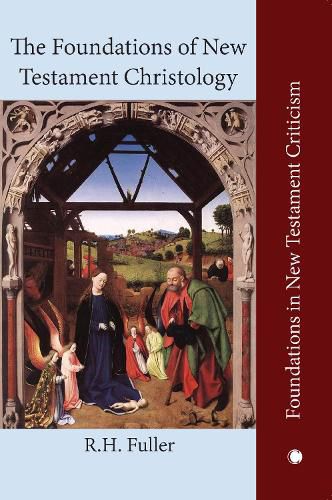Readings Newsletter
Become a Readings Member to make your shopping experience even easier.
Sign in or sign up for free!
You’re not far away from qualifying for FREE standard shipping within Australia
You’ve qualified for FREE standard shipping within Australia
The cart is loading…






One of the key tasks of New Testament study is to construct a correct doctrine of the person of Jesus Christ, which is central to the Christian faith. In The Foundations of New Testament Christology, R.H. Fuller fulfils this task through a close examination of the first-century texts in both their Palestinian and Hellenistic contexts.
An exponent of the neo-orthodox position that dominated post-war scholarship in the field, central to Fullers argument is the traditio-historical approach to New Testament criticism. As Fuller sees it, the Churchs Christology was a response to its total encounter with Jesus, not only in his earthly history but also in the Churchs continuing life. By emphasising the continuity between the historical Jesus and the witness and message of the early post-resurrection church, he offers a comprehensive and thorough survey of this most important facet of exegesis.
$9.00 standard shipping within Australia
FREE standard shipping within Australia for orders over $100.00
Express & International shipping calculated at checkout
One of the key tasks of New Testament study is to construct a correct doctrine of the person of Jesus Christ, which is central to the Christian faith. In The Foundations of New Testament Christology, R.H. Fuller fulfils this task through a close examination of the first-century texts in both their Palestinian and Hellenistic contexts.
An exponent of the neo-orthodox position that dominated post-war scholarship in the field, central to Fullers argument is the traditio-historical approach to New Testament criticism. As Fuller sees it, the Churchs Christology was a response to its total encounter with Jesus, not only in his earthly history but also in the Churchs continuing life. By emphasising the continuity between the historical Jesus and the witness and message of the early post-resurrection church, he offers a comprehensive and thorough survey of this most important facet of exegesis.